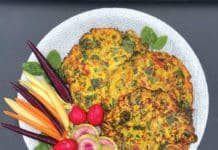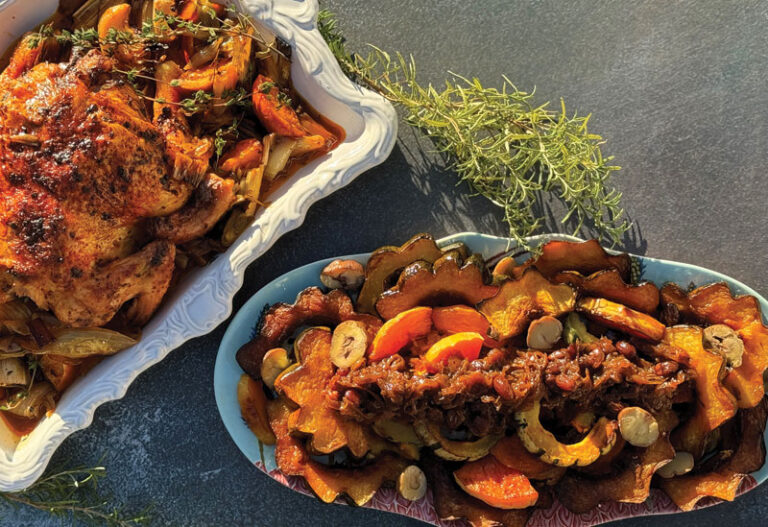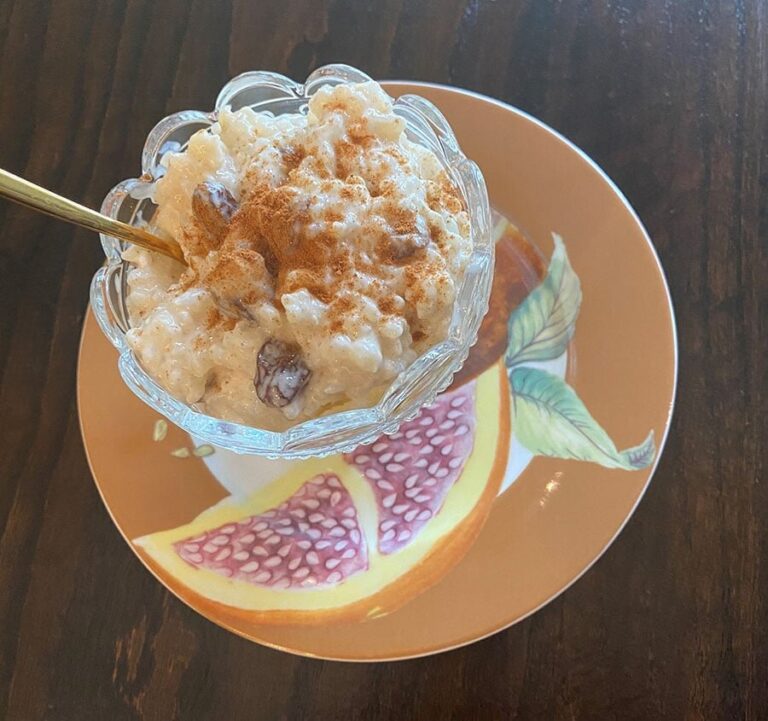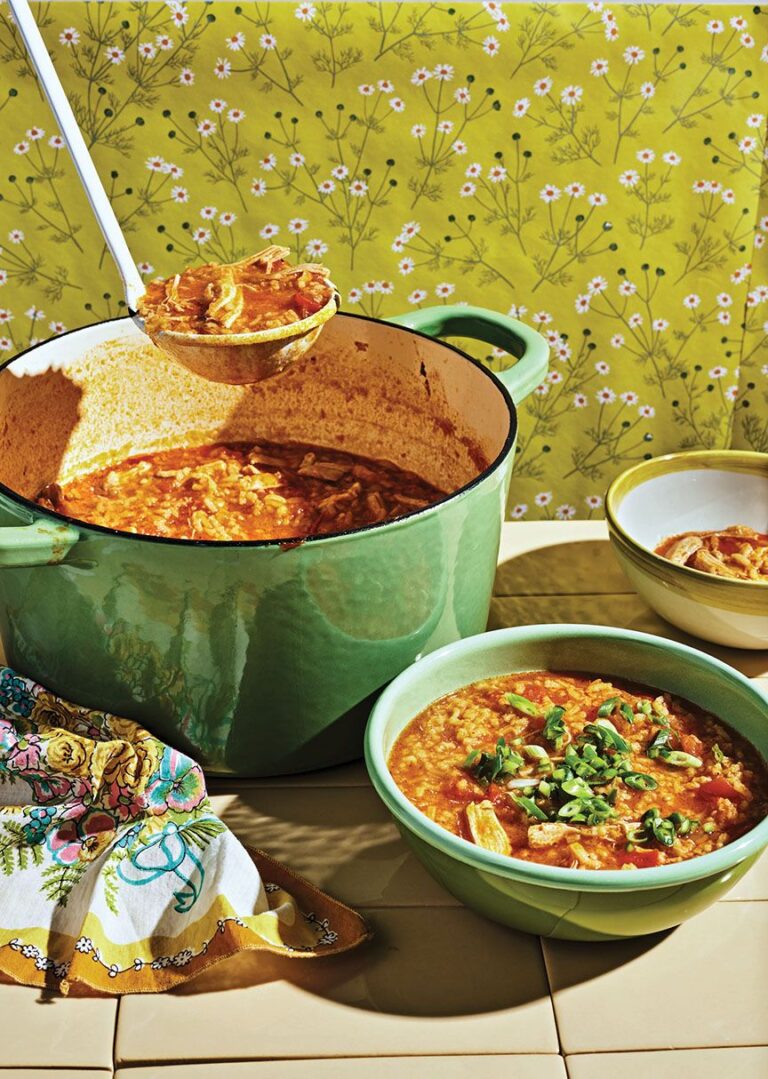Good Ghriba—A Moroccan Peanut Cookie
Ghriba are Moroccan shortbread cookies served at weddings and other festive occasions, or as an after dinner treat with a cup of classic Moroccan mint tea.

My son Sam and my niece Annabella were born a month apart. My son Max and my niece Ines and my twin nephews Luca and Nico were all born weeks apart. My daughter Rebekah, born a few years later, is the cherry on top. When they were growing up, Friday nights were always fun.
My mother would make her phone calls on Tuesday, well aware that my brothers and I couldn’t say no because she would be so disappointed, and the grandchildren would be as well. Friday nights were something to look forward to and they were almost always at my parent’s home in Westwood.
My mother would start the dinner preparations on Wednesday night. She would peel all the veggies for her silky smooth puréed vegetable soup. She would slow simmer the rich tomato and red pepper sauce for her Moroccan fish. She would assemble the potato pastel. And she would always bake a cake or a Moroccan dessert.
Whenever she was pressed for time, my mother would bake ghriba. Ghriba are Moroccan shortbread cookies served at weddings and other festive occasions, or as an after dinner treat with a cup of classic Moroccan mint tea.
Ghriba means circular in Arabic and these small round cookies have a wonderful, grainy texture and lovely crunch. But the cracks in the surface of the cookie have lent them the nickname Ghriba Behla, which loosely translates to “silly strange” cookies.
The cracks in the surface of the cookie have lent them the nickname Ghriba Behla, which loosely translates to “silly strange” cookies.
There are many variations in the ingredients and flavorings—the cookies can be made from almond flour or ground peanuts, perfumed with rosewater or orange blossom water, and flavored with spices such as cinnamon and cloves. The peanut cookies are called Ghriba Maalaka, which means “sticky” in Moroccan dialect.
My mother was a master baker, who knew how to make every Moroccan pastry to exquisite perfection. I infinitely regret not paying closer attention when I was young. By the time I took an interest in her baking, my father had developed diabetes and my niece Ines was gluten-free. My mother changed her whole repertoire to adapt to these dietary restrictions. She would experiment with lowering the sugar content in a recipe and still please her audience — her grandchildren.
She made small but significant adjustments to the beloved peanut ghriba recipe. The original method called for roasted peanuts to be ground with sugar and then mixed with flour, oil or butter and powdered sugar, then rolled into balls and dipped into more powdered sugar. She decided to use pure peanut butter and to reduce the powdered sugar to half a cup. Sometimes she would even use gluten free flour to make a special version for my niece.
The ghriba became one of the kids favorites. Heavenly, crumbly, slightly sweet melt in your mouth cookies.
In those days, I worked full time, so having Friday night dinners at my parents was a lifesaver, as well as such a treat. We lived close by, so the walk was easy and even in bad weather, we managed to get there.
As the kids grew older and became tweens, they started to invite friends to Friday night dinner and somewhere along the way it became a Friday night tradition to have a dance off. After dinner, the kids would dance and compete to be pronounced the one with the best moves. Those dinners, filled with laughs and Maman’s delicious food and cookies, are times we will always cherish. Today the grandchildren are all grown up. But when they reminisce about the dance offs, they laugh so hard they have tears streaming down their face.
This week Sharon and I decided we’d like prepare a dessert for our recipe. For some reason, this cookie just popped into my mind. I spent two days thinking about this cookie.
What was in it? How much flour? How much oil or butter? How much sugar? Eggs or no eggs?
I mentioned to Sharon that I wasn’t sure that I could remember how to make them. She reassured me to just make them and that the recipe will come back to me.
It has been at least 15 years since we ate this cookie. I walked into the kitchen and I told my daughter that I wanted to bake them but I wasn’t sure that I recalled the recipe. Her eyes lit up and she said “OMG! The peanut cookies!”
How can she remember? I think she must have been 5 years old the last time my mother made them. She told me that she remembers the cookies as melty and delicious. She even asked me “Will you put the powdered sugar on top?” She knew!
I will definitely sprinkle some powdered sugar on top. But I am sticking to my mother’s recipe and I will keep the sugar content as low as possible.
In my mind, I had a little conversation with my mother. I got to work and sure enough, my hands knew what to do — the cookies came together in no time.
I let them cool. I said a little prayer, took a bite and yes, that was Maman’s peanut Ghriba.
If you love peanut butter cookies and tea, you will love this little cookie with the strange cracks on top.
Peanut Ghriba recipe
4 oz butter/vegan butter at room
temperature or avocado oil
1/2 cup powdered sugar and more for
dusting cookies
1 cup all natural unsalted crunchy peanut
butter
1 tsp cinnamon
1 cup all purpose flour
1 tsp baking powder
Preheat oven to 350°F.
In a large bowl, use a fork to combine the butter and sugar until creamy.
Add the peanut butter and combine well.
Add the remaining ingredients and work the dough by hand. Make sure to squeeze it together as it will be extremely crumbly.
When dough comes together cover with plastic wrap and let the dough rest for 30 minutes.
Line a cookie sheet with parchment paper.
Squeeze chunks of dough the size of a walnut and roll into a ball and place on the cookie sheet.
Bake for 15 minutes.
Allow to cool completely and sprinkle with powdered sugar.
Store cookies in an airtight container.
Sharon Gomperts and Rachel Emquies Sheff have been friends since high school. The Sephardic Spice Girls project has grown from their collaboration on events for the Sephardic Educational Center in Jerusalem. Follow them
on Instagram @sephardicspicegirls and on Facebook at Sephardic Spice SEC Food






